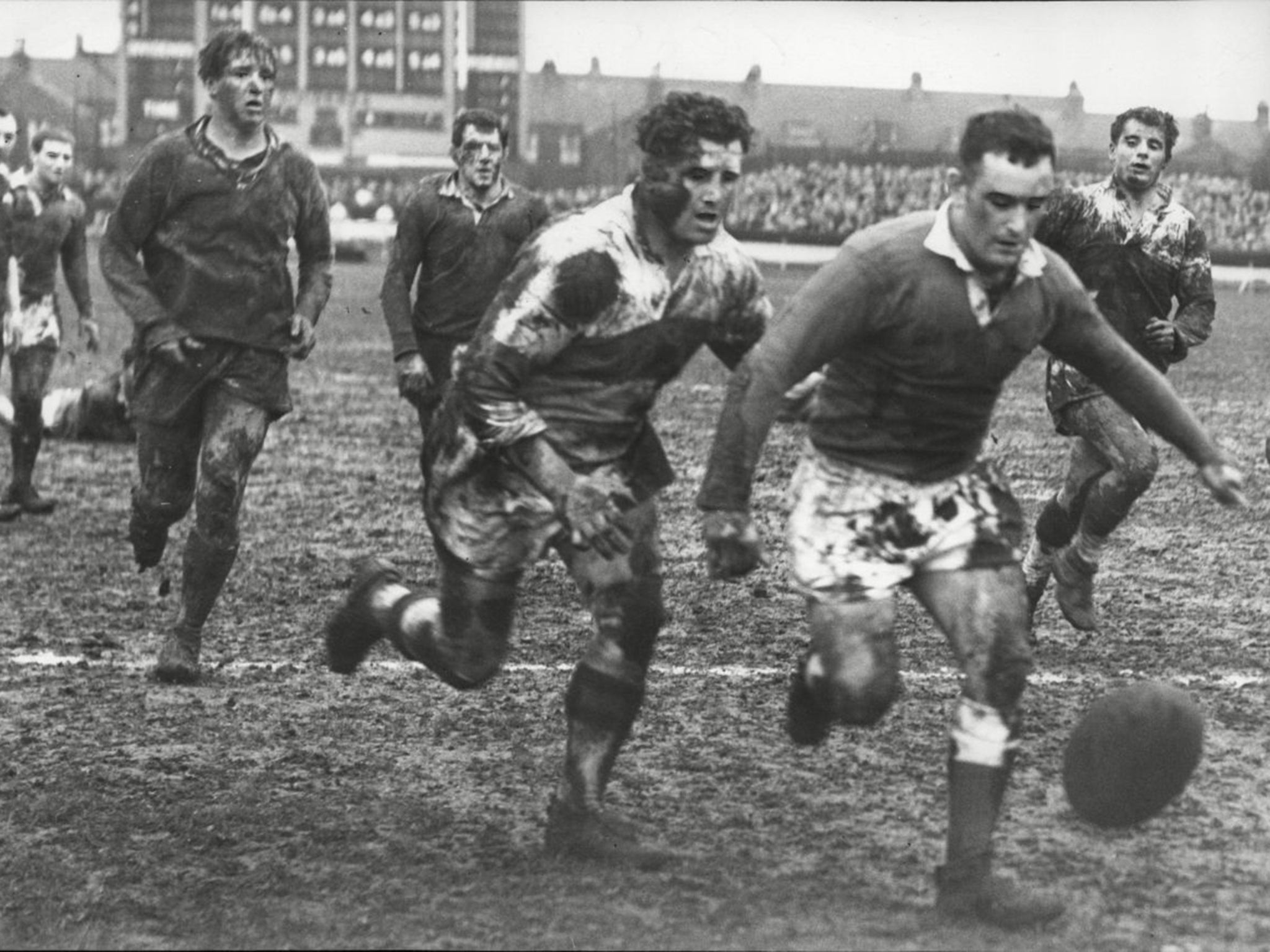Derek Turner: Rugby league back-rower nicknamed Rocky who won the Challenge Cup as both player and coach
Turner won more caps than either of his great rivals and that alone shows the esteem in which he was held

Your support helps us to tell the story
From reproductive rights to climate change to Big Tech, The Independent is on the ground when the story is developing. Whether it's investigating the financials of Elon Musk's pro-Trump PAC or producing our latest documentary, 'The A Word', which shines a light on the American women fighting for reproductive rights, we know how important it is to parse out the facts from the messaging.
At such a critical moment in US history, we need reporters on the ground. Your donation allows us to keep sending journalists to speak to both sides of the story.
The Independent is trusted by Americans across the entire political spectrum. And unlike many other quality news outlets, we choose not to lock Americans out of our reporting and analysis with paywalls. We believe quality journalism should be available to everyone, paid for by those who can afford it.
Your support makes all the difference.There is no more vivid illustration of the strength of British rugby league back-row forward play in the late 1950s and early '60s than the fact that Derek Turner won a mere 24 Test caps. For most of that time, he was locked in a three-way tussle with two equally eminent contemporaries, Vince Karalius of St Helens, who was almost exactly the same age, and Hull's Johnny Whiteley, who was two years older.
You could fudge the issue by playing one or more of them in the second row, but they were all loose-forwards by training and inclination. Even now it remains impossible to say which of them was the best, because each had his own distinctive style, summed up by his nickname. Karalius was "The Wild Bull of the Pampas"; Whiteley was "Gentleman John"; Turner was simply "Rocky", and nobody who played against him in those days would claim that the name – with its conscious echoes of the great heavyweight boxer, Rocky Marciano – did not fit. He won more caps than either of his great rivals and that alone shows the esteem in which he was held.
After briefly playing rugby union for Ossett, Turner signed as a professional with Hull Kingston Rovers in 1950. He scored an impressive 56 tries in 141 appearances for the Robins, but it was when he moved to Oldham in 1955 that he really made the game sit up and take notice. Oldham already had a powerful pack; with Turner on board it became one to be feared. During his time there, the Roughyeds won the Championship, the Lancashire Cup three times and the Lancashire League twice. The only disappointment was that they never reached the Challenge Cup final at Wembley – arguably the best club side not to do so.
Turner was to more than make up for that with his next club, Wakefield Trinity, who paid £8000 for him in 1959. He captained them to victory at Wembley in 1960, 1962 and 1963. It was, at the time, the closest any club had come to complete domination of the code's oldest trophy. He won two Yorkshire Cups and four Yorkshire Leagues at Wakefield, although Trinity lost their only Championship final to Wigan in 1960.
Shooting ‘This Sporting Life’, he was told to ‘get real’ in a scrum. Richard Harris was knocked out
Less conventionally, he figured prominently in one of the best films to be made about any sport, This Sporting Life. In his quest for authenticity, the director, Lindsay Anderson, asked Turner to "get real" in a scrum with the star of the film, Richard Harris, who fancied himself as a bit of a rugby player.
Harris was knocked out and filming was abandoned for the day. Rocky's delivery of the punch was more convincing than his delivery of his few lines.
Turner had made his Great Britain debut while still an Oldham player in 1956, playing two of the Tests that won the Ashes, The other highlights of his Test career included the World Cups of 1957 and 1960, the latter of them a British victory. He was selected for the 1958 Lions Tour, but withdrew because of injury.
He did tour in 1962, featuring in one bizarre incident in the third Test, at the Sydney Cricket Ground. The Australian forward, Dud Beattie, broke his collar-bone and, in those days of no substitutes, decided that, if he was going off, he was taking a Pom with him.
He started a fight with Turner and, sure enough, both men were sent off, with the Englishman berating the Australian most of the way back to the SCG dressing rooms. Turner's last Test was against France later that year.
When he retired as a player, he was a long-serving and highly regarded coach at Castle-ford, the team he led to Challenge Cup success in 1969, when they beat Salford at Wembley. He also coached Leeds and, finally, Wakefield, where his tenure co-incided with the high-profile if short-term signing of the world's leading player, Wally Lewis.
By then, he had become somewhat disillusioned with the game, which he regarded as lacking in genuine toughness and honesty. For a time, he ran a removals firm with his son Darren, but he had been ill for several years before his death.
DAVE HADFIELD
Derek Turner, rugby league player and coach: born Ossett, West Yorkshire 13 November 1932; died Wakefield, West Yorkshire 31 July 2015.
Join our commenting forum
Join thought-provoking conversations, follow other Independent readers and see their replies
Comments